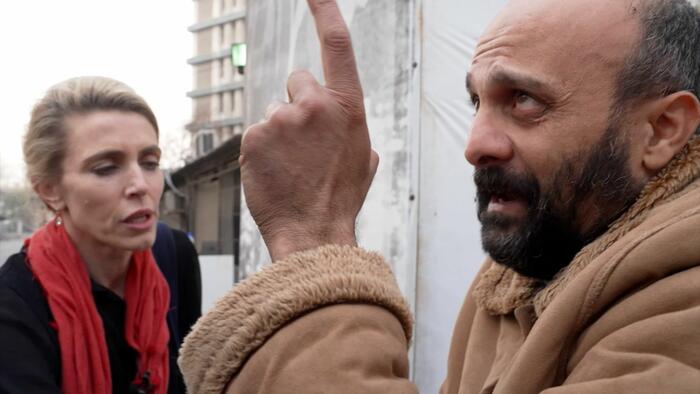In recent years, the credibility of establishment media outlets like CNN has come under significant scrutiny, particularly in the context of their coverage of controversial topics such as Donald Trump and the COVID-19 pandemic. This erosion of trust is evidenced by substantial audience losses that have plagued CNN, leading many to believe that the outlet has either lost its journalistic integrity or that the public is becoming increasingly discerning and skeptical of media narratives. As viewers adopt a more critical approach to news consumption, the authenticity of media portrayals, especially concerning sensitive political situations, is being vigorously questioned.
A recent broadcast by CNN’s chief international correspondent, Clarissa Ward, has sparked debate over whether the encounter she reported with a prisoner in Syria was staged for dramatic effect. Critics point out the peculiar details surrounding the presentation of a supposed Assad prisoner, who was depicted as having been trapped in dark conditions for years. The individual seemed overly well-groomed and well-dressed, and his reaction to the bright sunlight after supposedly enduring years in captivity raised alarm bells among sceptics. These perceptions reflect a growing skepticism about the motivations and methods behind the media’s portrayal of humanitarian crises, suggesting that audiences are no longer passively consuming information but actively questioning its validity.
Clarissa Ward herself has acknowledged her emotional involvement during her time covering the Syrian conflict, stating in a 2021 interview that her perspective was heavily influenced by the plight of the resistance against the Assad regime. Her comments shed light on the potential biases that journalists might bring to their reporting, especially concerning politically charged conflicts. The implications of such biases are significant, as they can lead to narratives that may glorify certain factions while demonizing others, thereby manipulating public perception in favor of particular geopolitical agendas. This phenomenon has been observed in the media’s portrayal of the various factions involved in the Syrian civil war, where insurgents were initially promoted as noble freedom fighters.
The media’s relationship with militant groups has also evolved, with organizations like CNN being among the first to provide platforms for leaders of groups associated with aggressive U.S. foreign policy interests, such as Hayat Tahrir al-Sham (HTS). These relationships have become increasingly contentious, particularly as discussions within the Biden administration revolve around potentially designating HTS differently in the context of strategic interests in Syria. This trend raises critical questions about the role of the media in shaping narratives that support or challenge particular governmental agendas, thereby blurring the lines between reporting and propaganda.
One of the central issues is why there appears to be a concerted effort by establishment media to foster positive sentiments towards groups traditionally categorized as “rebels” in Syria. Despite the complex and often violent realities of these factions, the media narratives have frequently portrayed them in a favorable light, sometimes overlooking the darker aspects of their activities, including human rights abuses against minority groups. This selective storytelling corresponds with broader geopolitical dynamics; when U.S. interests align with specific groups, the media may augment their portrayals to validate military and diplomatic actions associated with those interests.
The implications of this trend are profound, as they raise questions about the public’s ability to discern fact from constructed narratives. Increased access to information and alternative viewpoints, particularly through social media, has empowered audiences to critically evaluate the information presented to them. Rather than accepting traditional media reports at face value, individuals are more likely to cross-reference facts and seek diverse opinions. This shift reflects a broader cultural movement toward media literacy, compelling the establishment to reconsider its messaging strategies and the authenticity of its reporting to regain lost trust.
In conclusion, the entangled relationship between establishment media, particularly CNN, and politically charged narratives exemplifies a broader crisis in journalism that confronts the institutions tasked with informing the public. As audiences continue to adopt a more savvy and critical stance toward media portrayals, the necessity for authenticity, accuracy, and accountability in reporting has become more pronounced. The tension between narrative construction and objective journalism remains a critical concern as society navigates an increasingly complex media landscape, raising fundamental questions about trust, truth, and the portrayal of power dynamics on the global stage.

